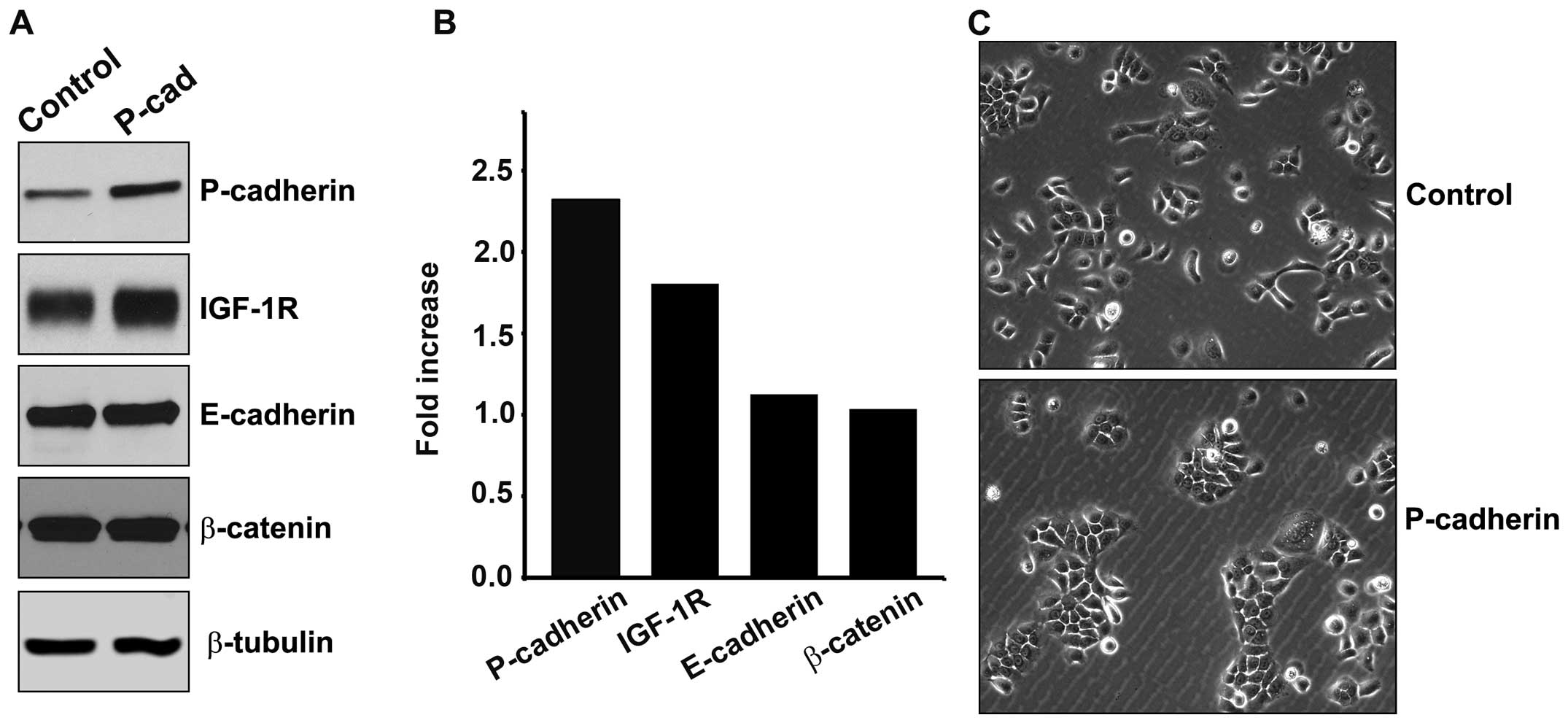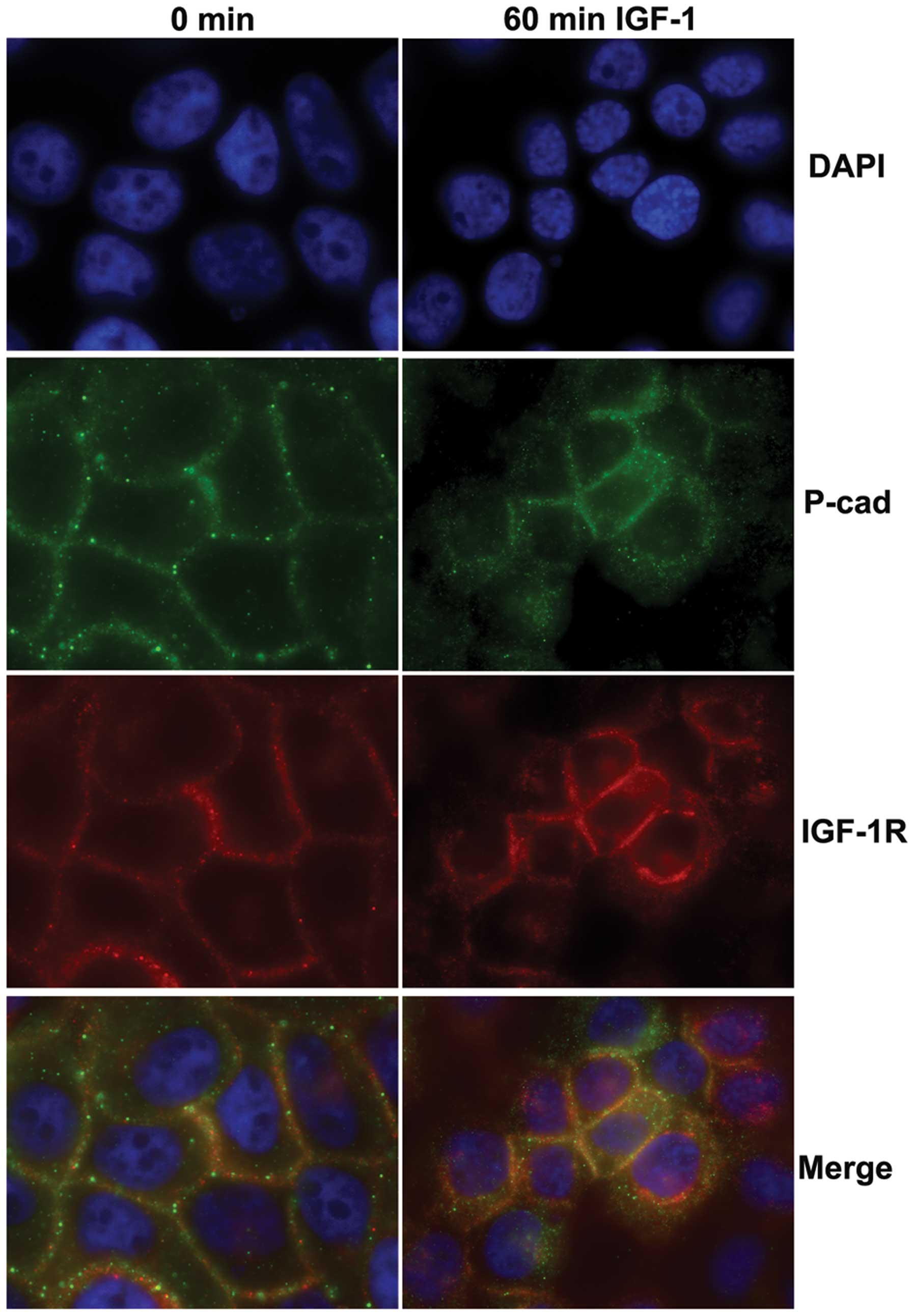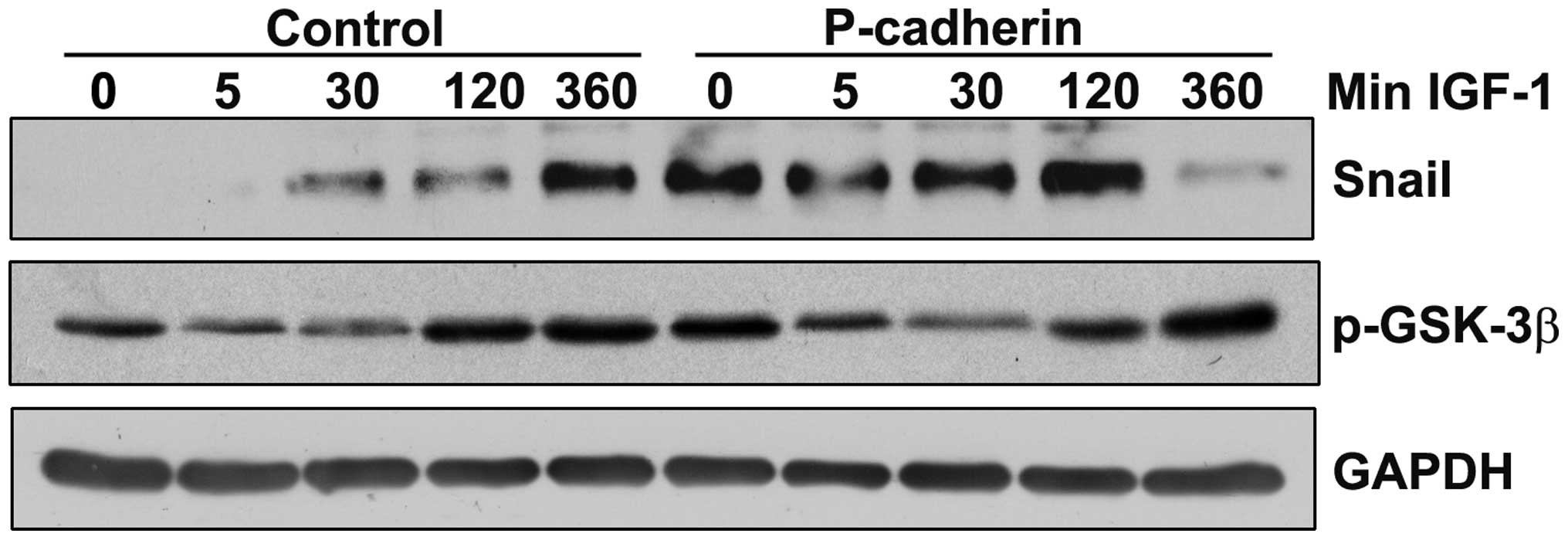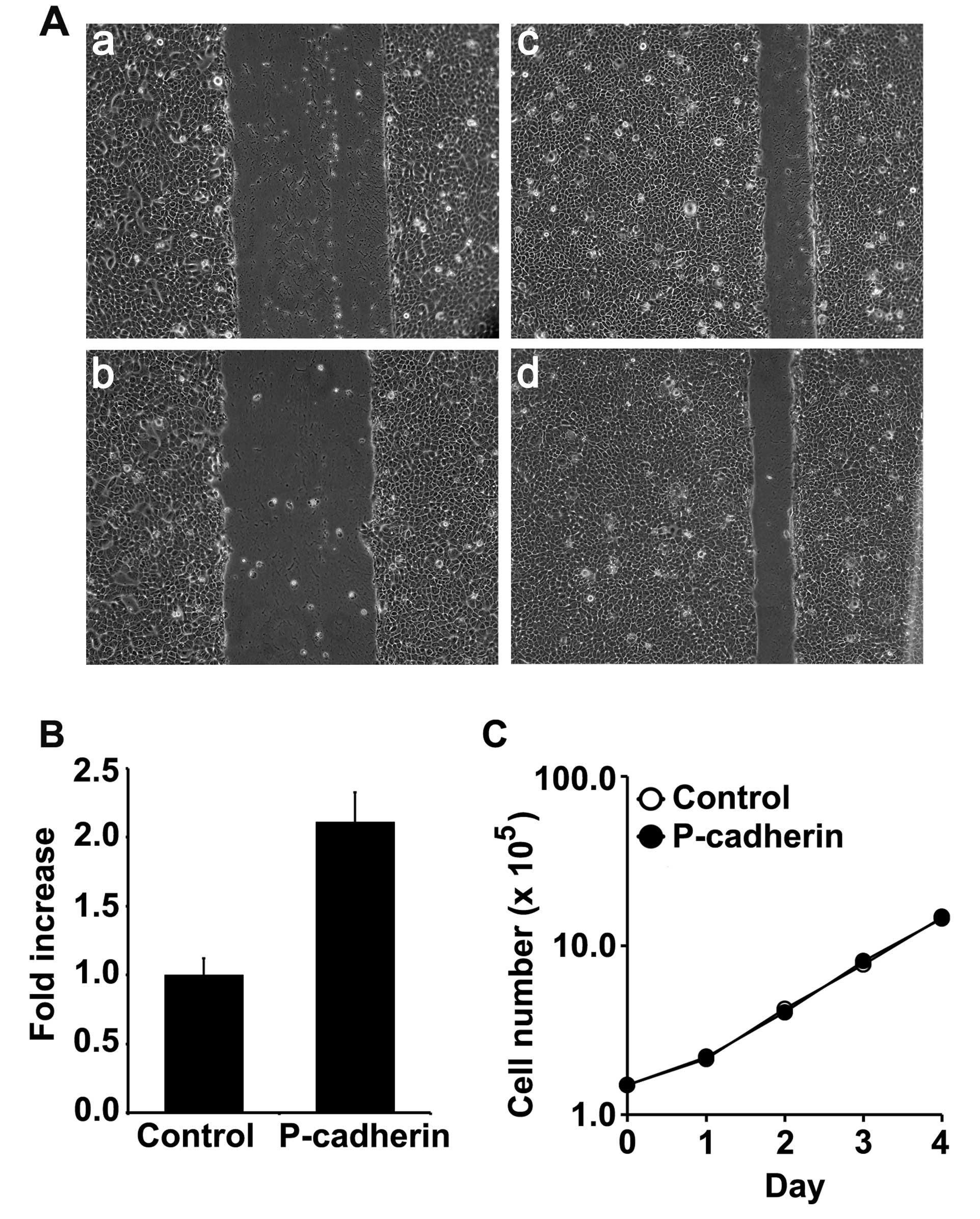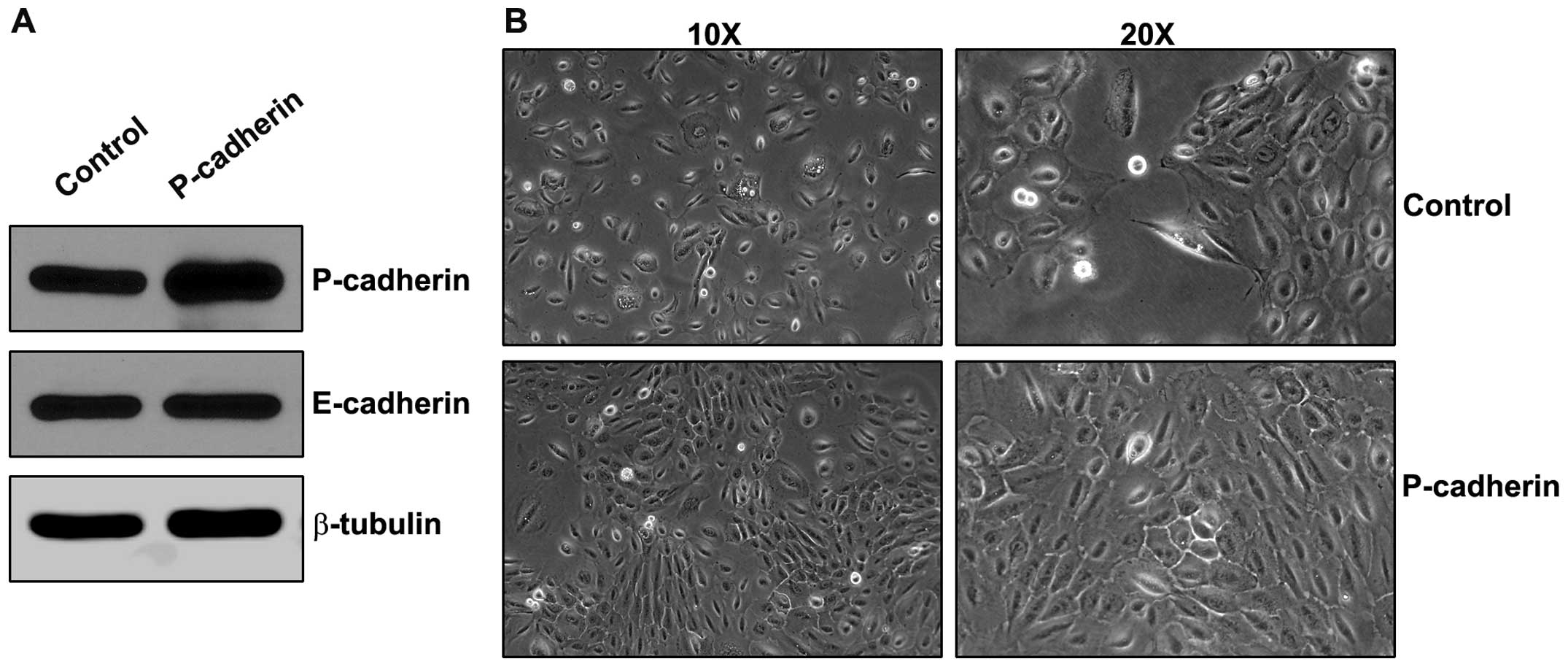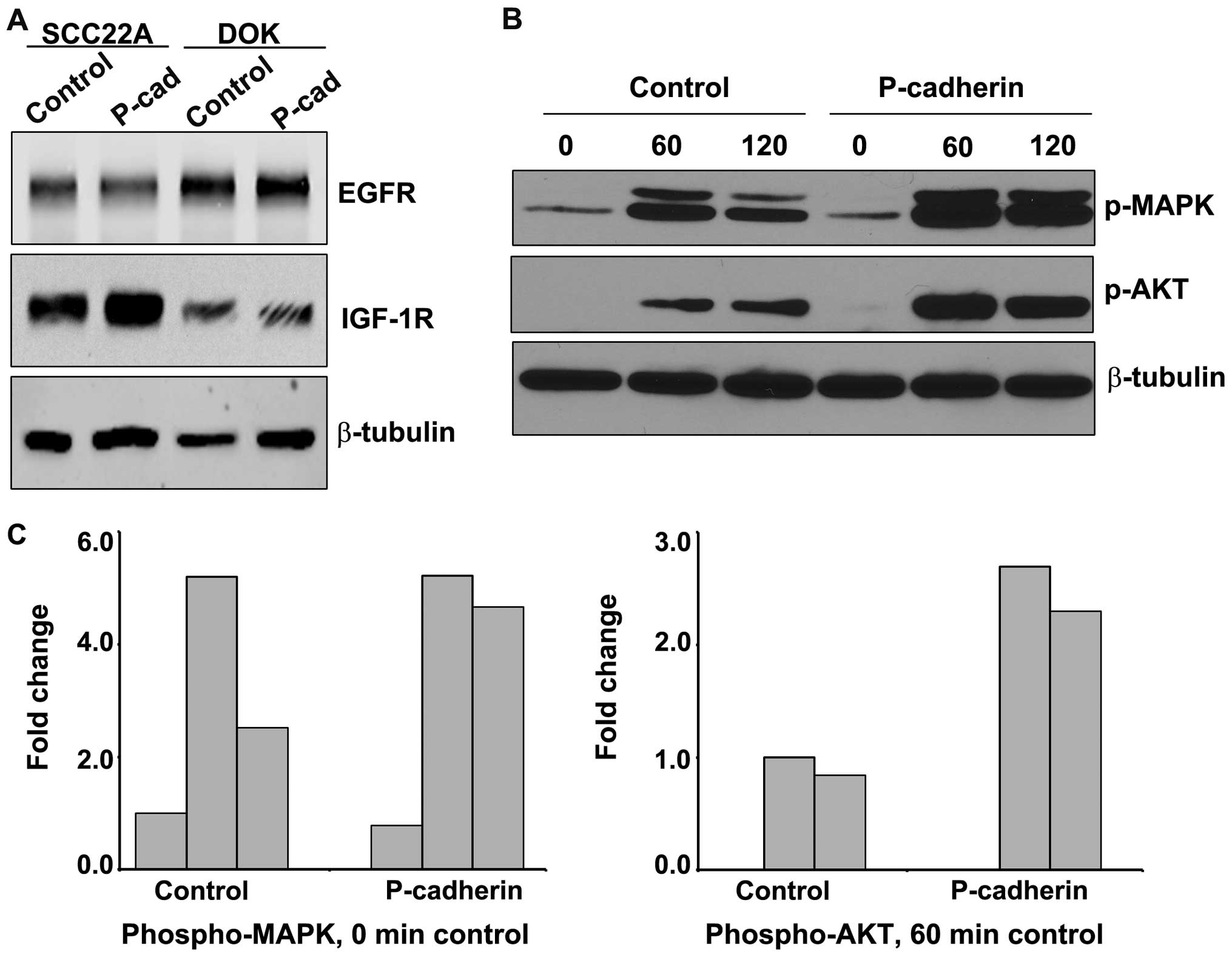|
1
|
Warnakulasuriya S: Global epidemiology of
oral and oropharyngeal cancer. Oral Oncol. 45:309–316. 2009.
View Article : Google Scholar
|
|
2
|
Siegel R, Naishadham D and Jemal A: Cancer
statistics, 2013. CA Cancer J Clin. 63:11–30. 2013. View Article : Google Scholar
|
|
3
|
Santos-García A, Abad-Hernández MM,
Fonseca-Sánchez E, et al: E-caderin, laminin and collagen IV
expression in the evolution from dysplasia to oral squamous cell
carcinoma. Med Oral Path Oral Cir Bucal. 11:E100–E105. 2006.(In
English and Spanish).
|
|
4
|
Birchmeier W and Behrens J: Cadherin
expression in carcinomas: role in the formation of cell junctions
and the prevention of invasiveness. Biochim Biophys Acta.
1198:11–26. 1994.PubMed/NCBI
|
|
5
|
Shimoyama Y, Hirohashi S, Hirano S, et al:
Cadherin cell-adhesion molecules in human epithelial tissues and
carcinomas. Cancer Res. 49:2128–2133. 1989.PubMed/NCBI
|
|
6
|
Van Marck V, Stove C, Jacobs K, Van den
Eynden G and Bracke M: P-cadherin in adhesion and invasion:
Opposite roles in colon and bladder carcinoma. Int J Cancer.
128:1031–1044. 2011.PubMed/NCBI
|
|
7
|
Van Marck V, Stove C, Van Den Bossche K,
et al: P-cadherin promotes cell-cell adhesion and counteracts
invasion in human melanoma. Cancer Res. 65:8774–8783.
2005.PubMed/NCBI
|
|
8
|
Paredes J, Albergaria A, Oliveira JT,
Jerónimo C, Milanezi F and Schmitt FC: P-cadherin overexpression is
an indicator of clinical outcome in invasive breast carcinomas and
is associated with CDH3 promoter hypomethylation. Clin Cancer Res.
11:5869–5877. 2005. View Article : Google Scholar : PubMed/NCBI
|
|
9
|
Bagutti C, Speight PM and Watt FM:
Comparison of integrin, cadherin and catenin expression in squamous
cell carcinomas of the oral cavity. J Pathol. 186:8–16. 1998.
View Article : Google Scholar : PubMed/NCBI
|
|
10
|
Williams HK, Sanders DS, Jankowski JA,
Landini G and Brown AM: Expression of cadherins and catenins in
oral epithelial dysplasia and squamous cell carcinoma. J Oral
Pathol Med. 27:308–317. 1998. View Article : Google Scholar : PubMed/NCBI
|
|
11
|
Muñoz-Guerra MF, Marazuela EG,
Fernández-Contreras ME and Gamallo C: P-cadherin expression reduced
in squamous cell carcinoma of the oral cavity: an indicatior of
poor prognosis. Cancer. 103:960–969. 2005.PubMed/NCBI
|
|
12
|
Lo Muzio L, Pannone G, Mignogna M, et al:
P-cadherin expression predicts clinical outcome in oral squamous
cell carcinomas. Histol Histopathol. 19:1089–1099. 2004.PubMed/NCBI
|
|
13
|
Bedzhov I, Liszewska E, Kanzler B and
Stemmler MP: IGF1R signaling is indispensable for preimplantation
development and is activated via a novel function of E-cadherin.
PLoS Genet. 8:e10026092012. View Article : Google Scholar : PubMed/NCBI
|
|
14
|
Bryant DM, Wylie FG and Stow JL:
Regulation of endocytosis, nuclear translocation and signaling of
fibroblast growth factor receptor 1 by E-cadherin. Mol Biol Cell.
16:14–23. 2005. View Article : Google Scholar : PubMed/NCBI
|
|
15
|
Qian X, Karpova T, Sheppard AM, McNally J
and Lowy DR: E-cadherin-mediated adhesion inhibits ligand-dependent
activation of diverse receptor tyrosine kinases. EMBO J.
23:1739–1784. 2004. View Article : Google Scholar : PubMed/NCBI
|
|
16
|
Suyama K, Shapiro I, Guttman M and Hazan
RB: A signaling pathway leading to metastasis is controlled by
N-cadherin and the FGF receptor. Cancer Cell. 2:301–314. 2002.
View Article : Google Scholar : PubMed/NCBI
|
|
17
|
Cheung LW, Mak AS, Cheung AN, Ngan HY,
Leung PC and Wong AS: P-cadherin cooperates with insulin-like
growth factor-1 receptor to promote metastatic signaling of
gonadotropin-releasing hormone in ovarian cancer via p120 catenin.
Oncogene. 30:2964–2974. 2011. View Article : Google Scholar : PubMed/NCBI
|
|
18
|
Johnson KR, Lewis JE, Li D, et al: P- and
E-cadherin are in separate complexes in cells expressing both
cadherins. Exp Cell Res. 207:252–260. 1993. View Article : Google Scholar : PubMed/NCBI
|
|
19
|
Ireton RC, Davis MA, Van Hengel J, et al:
A novel role for p120 catenin in E-cadherin function. J Cell Biol.
159:465–476. 2002. View Article : Google Scholar : PubMed/NCBI
|
|
20
|
Maeda M, Johnson E, Mandal SH, et al:
Expression of inappropriate cadherins by epithelial tumor cells
promotes endocytosis and degradation of E-cadherin via competition
for p120(ctn). Oncogene. 25:4595–4604. 2006. View Article : Google Scholar : PubMed/NCBI
|
|
21
|
Joseph BK and Sundaram DB: Insulin-like
growth factor-1 receptor expression in oral squamous cell
carcinoma. J Clin Exp Invest. 2:354–361. 2011. View Article : Google Scholar
|
|
22
|
Morali OG, Delmas V, Moore R, Jeanney C,
Thiery JP and Larue L: IGF-II induces rapid beta-catenin relocation
to the nucleus during epithelium to mesenchyme transition.
Oncogene. 20:4942–4950. 2001. View Article : Google Scholar : PubMed/NCBI
|
|
23
|
Chavez MG, Buhr CA, Petrie WK,
Wandinger-Ness A, Kusewitt DF and Hudson LG: Differential
downregulation of E-cadherin and desmoglein by epidermal growth
factor. Dermatol Res Pract. 2012:3095872012.PubMed/NCBI
|
|
24
|
Kim HJ, Litzenburger BC, Cui X, et al:
Constitutively active type I insulin-like growth factor receptor
causes transformation and xenograft growth of immortalized mammary
epithelial cells and is accompanied by an epithelial-to-mesenchymal
transition mediated by NF-κB and Snail. Mol Cell Biol.
27:3165–3175. 2007.PubMed/NCBI
|
|
25
|
Zhou BP, Deng J, Xia W, et al: Dual
regulation of Snail by GSK-3beta-mediated phosphorylation in
control of epithelial-mesenchymal transition. Nat Cell Biol.
6:931–940. 2004. View
Article : Google Scholar : PubMed/NCBI
|
|
26
|
Sutherland C, Leighton IA and Cohen P:
Inactivation of glycogen synthase kinase-3 beta by phosphorylation:
new kinase connections in insulin and growth-factor signalling.
Biochem J. 296:15–19. 1993.PubMed/NCBI
|
|
27
|
Bauer K, Dowejko A, Bosserhoff AK,
Reichert T and Bauer RJ: P-cadherin induces an epithelial-like
phenotype in oral squamous cell carcinoma by GSK-3beta-mediated
Snail phosphorylation. Carcinogenesis. 30:1781–1788. 2009.
View Article : Google Scholar : PubMed/NCBI
|
|
28
|
Hiraishi Y, Wada T, Nakatani K, Negoro K
and Fujita S: Immunohistochemical expression of EGFR and p-EGFR in
oral squamous cell carcinomas. Pathol Oncol Res. 12:87–91. 2006.
View Article : Google Scholar : PubMed/NCBI
|
|
29
|
Lo Muzio L, Campisi G, Farina A, et al:
P-cadherin expression and survival rate in oral squamous cell
carcinoma: an immunohistochemical study. BMC Cancer.
5:632005.PubMed/NCBI
|
|
30
|
Lozano E, Betson M and Braga VM: Tumor
progression: small GTPases and loss of cell-cell adhesion.
Bioessays. 25:452–463. 2003. View Article : Google Scholar : PubMed/NCBI
|
|
31
|
Taniuchi K, Nakagawa H, Hosokawa M, et al:
Overexpressed P-cadherin/CDH3 promotes motility of pancreatic
cancer cells by interacting with p120ctn and activating rho-family
GTPases. Cancer Res. 65:3092–3099. 2005.PubMed/NCBI
|
|
32
|
Zhang A, Wang Q, Han Z, et al: Reduced
expression of Snail decreases breast cancer cell motility by
downregulating the expression and inhibiting the activity of RhoA
GTPase. Oncol Lett. 6:339–346. 2013.PubMed/NCBI
|
|
33
|
Taelman VF, Dobrowolski R, Plouhinec JL,
et al: Wnt signaling requires sequestration of glycogen synthase
kinase 3 inside multivesicular endosomes. Cell. 143:1136–1148.
2010. View Article : Google Scholar : PubMed/NCBI
|
|
34
|
Usami Y, Satake S, Nakayama F, et al:
Snail-associated epithelial-mesenchymal transition promotes
oesophageal squamous cell carcinoma motility and progression. J
Pathol. 215:330–339. 2008. View Article : Google Scholar
|
|
35
|
Chang SE, Foster S, Betts D and Marnock
WE: DOK, a cell line established from human dysplastic oral mucosa,
shows a partially transformed non-malignant phenotype. Int J
Cancer. 52:896–902. 1992. View Article : Google Scholar : PubMed/NCBI
|
|
36
|
Tsui IF, Poh CF, Garnis C, Rosin MP, Zhang
L and Lam WL: Multiple pathways in the FGF signaling network are
frequently deregulated by gene amplification in oral dysplasias.
Int J Cancer. 125:2219–2228. 2009. View Article : Google Scholar : PubMed/NCBI
|
|
37
|
Grille SJ, Bellacosa A, Upson J, et al:
The protein kinase Akt induces epithelial mesenchymal transition
and promotes enhanced motility and invasiveness of squamous cell
carcinoma lines. Cancer Res. 63:2172–2178. 2003.PubMed/NCBI
|
|
38
|
Reddy KB, Krueger JS, Kondapaka SB and
Diglio CA: Mitogen-activated protein kinase (MAPK) regulates the
expression of progelatinase B (MMP-9) in breast epithelial cells.
Int J Cancer. 82:268–273. 1999. View Article : Google Scholar : PubMed/NCBI
|
|
39
|
Klemke RL, Cai S, Giannini AL, Gallagher
PJ, De Lanerolle P and Cheresh DA: Regulation of cell motility by
mitogen-activated protein kinase. J Cell Biol. 137:481–492. 1997.
View Article : Google Scholar : PubMed/NCBI
|















